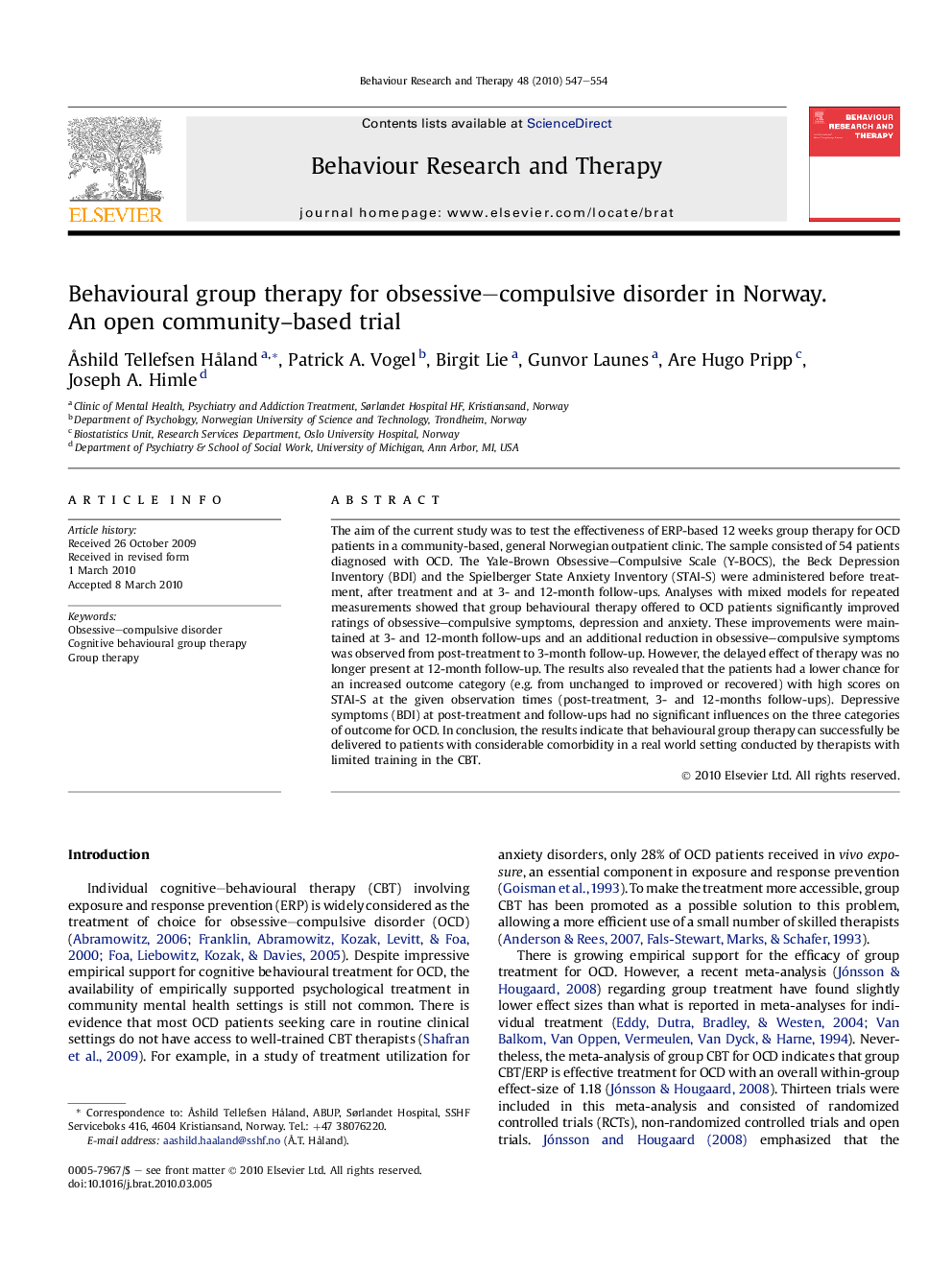| Article ID | Journal | Published Year | Pages | File Type |
|---|---|---|---|---|
| 902136 | Behaviour Research and Therapy | 2010 | 8 Pages |
The aim of the current study was to test the effectiveness of ERP-based 12 weeks group therapy for OCD patients in a community-based, general Norwegian outpatient clinic. The sample consisted of 54 patients diagnosed with OCD. The Yale-Brown Obsessive–Compulsive Scale (Y-BOCS), the Beck Depression Inventory (BDI) and the Spielberger State Anxiety Inventory (STAI-S) were administered before treatment, after treatment and at 3- and 12-month follow-ups. Analyses with mixed models for repeated measurements showed that group behavioural therapy offered to OCD patients significantly improved ratings of obsessive–compulsive symptoms, depression and anxiety. These improvements were maintained at 3- and 12-month follow-ups and an additional reduction in obsessive–compulsive symptoms was observed from post-treatment to 3-month follow-up. However, the delayed effect of therapy was no longer present at 12-month follow-up. The results also revealed that the patients had a lower chance for an increased outcome category (e.g. from unchanged to improved or recovered) with high scores on STAI-S at the given observation times (post-treatment, 3- and 12-months follow-ups). Depressive symptoms (BDI) at post-treatment and follow-ups had no significant influences on the three categories of outcome for OCD. In conclusion, the results indicate that behavioural group therapy can successfully be delivered to patients with considerable comorbidity in a real world setting conducted by therapists with limited training in the CBT.
